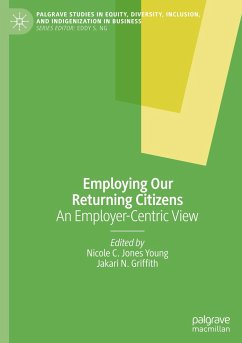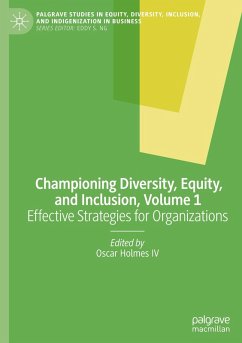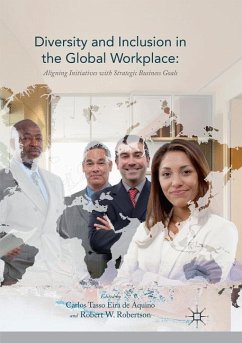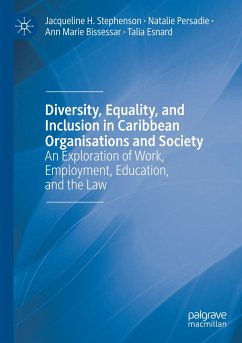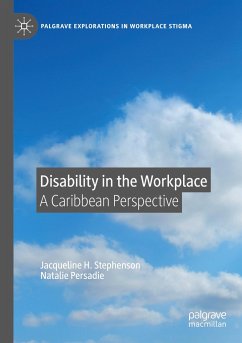
Allyship in Organizations
A Comprehensive Analysis from a DEI Perspective

PAYBACK Punkte
57 °P sammeln!
This book provides a comprehensive analysis of the issues surrounding allyship as one of the tools in the arsenal of organisational leaders to further advance the goal of diversity, equity and inclusion (DEI) in organisations. It extends the existing literature on allyship, which has predominantly focused on allyship in the context of gender and racial inclusion. It specifically addresses allyship concerns within organizations that are striving for DEI. The chapters explore various models of allyship, delving into the antecedents, moderators, mediators, and organizational outcomes associated w...
This book provides a comprehensive analysis of the issues surrounding allyship as one of the tools in the arsenal of organisational leaders to further advance the goal of diversity, equity and inclusion (DEI) in organisations. It extends the existing literature on allyship, which has predominantly focused on allyship in the context of gender and racial inclusion. It specifically addresses allyship concerns within organizations that are striving for DEI. The chapters explore various models of allyship, delving into the antecedents, moderators, mediators, and organizational outcomes associated with effective allyship in the pursuit of DEI goals.
This text critically examines the concept of allyship in the context of discrimination faced by various groups, including but not limited to under-researched populations such as persons with disabilities and individuals from the lesbian, gay, bisexual, and queer (LGBQ) community. By extending the understanding of human resource practitioners and academic theorists in these underexplored but crucial areas, it sheds light on the role of organisational allies in addressing discrimination and supporting marginalized groups. Additionally, it delves into the involvement of organisational allies in adjudicated discrimination cases, further enriching the discourse on allyship and its practical applications.
Providing a comprehensive review of the salient issues surrounding allyship within organisations and the extent to which this can be an efficacious approach in promoting and developing more inclusive and diverse contemporary organisations, this work will prove useful to researchers in facilitating the delivery of contemporary data, literature and analysis as it relates to the current challenges faced by disadvantaged employees and job seekers and how lenses through which they are perceived, may be prejudicial.
This text critically examines the concept of allyship in the context of discrimination faced by various groups, including but not limited to under-researched populations such as persons with disabilities and individuals from the lesbian, gay, bisexual, and queer (LGBQ) community. By extending the understanding of human resource practitioners and academic theorists in these underexplored but crucial areas, it sheds light on the role of organisational allies in addressing discrimination and supporting marginalized groups. Additionally, it delves into the involvement of organisational allies in adjudicated discrimination cases, further enriching the discourse on allyship and its practical applications.
Providing a comprehensive review of the salient issues surrounding allyship within organisations and the extent to which this can be an efficacious approach in promoting and developing more inclusive and diverse contemporary organisations, this work will prove useful to researchers in facilitating the delivery of contemporary data, literature and analysis as it relates to the current challenges faced by disadvantaged employees and job seekers and how lenses through which they are perceived, may be prejudicial.





